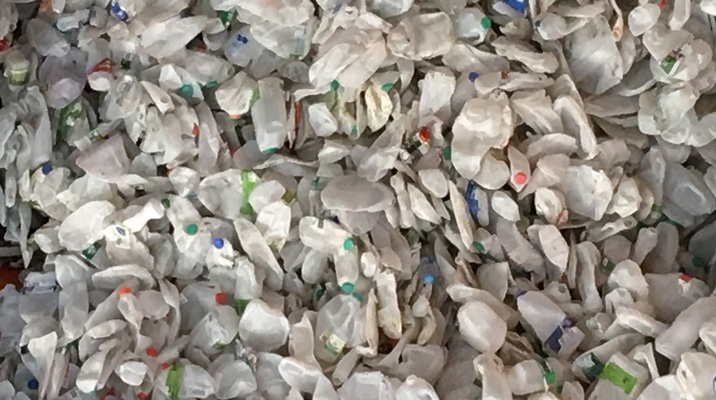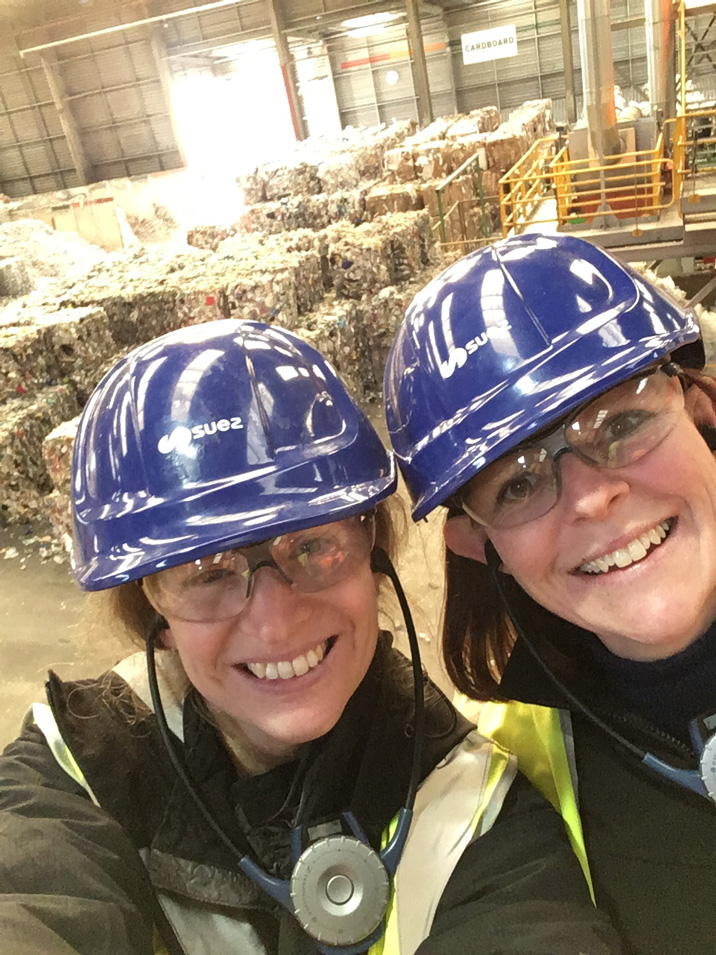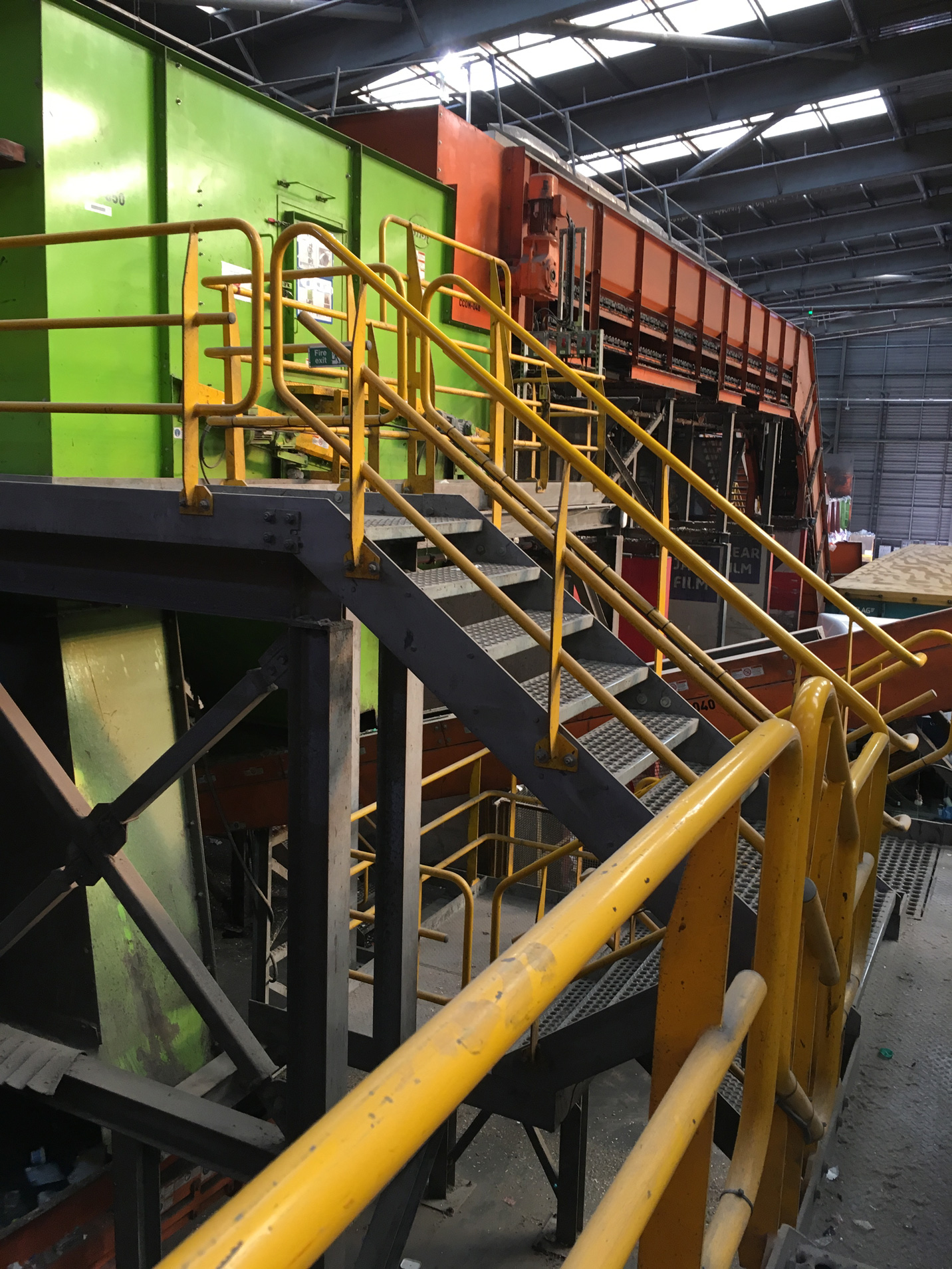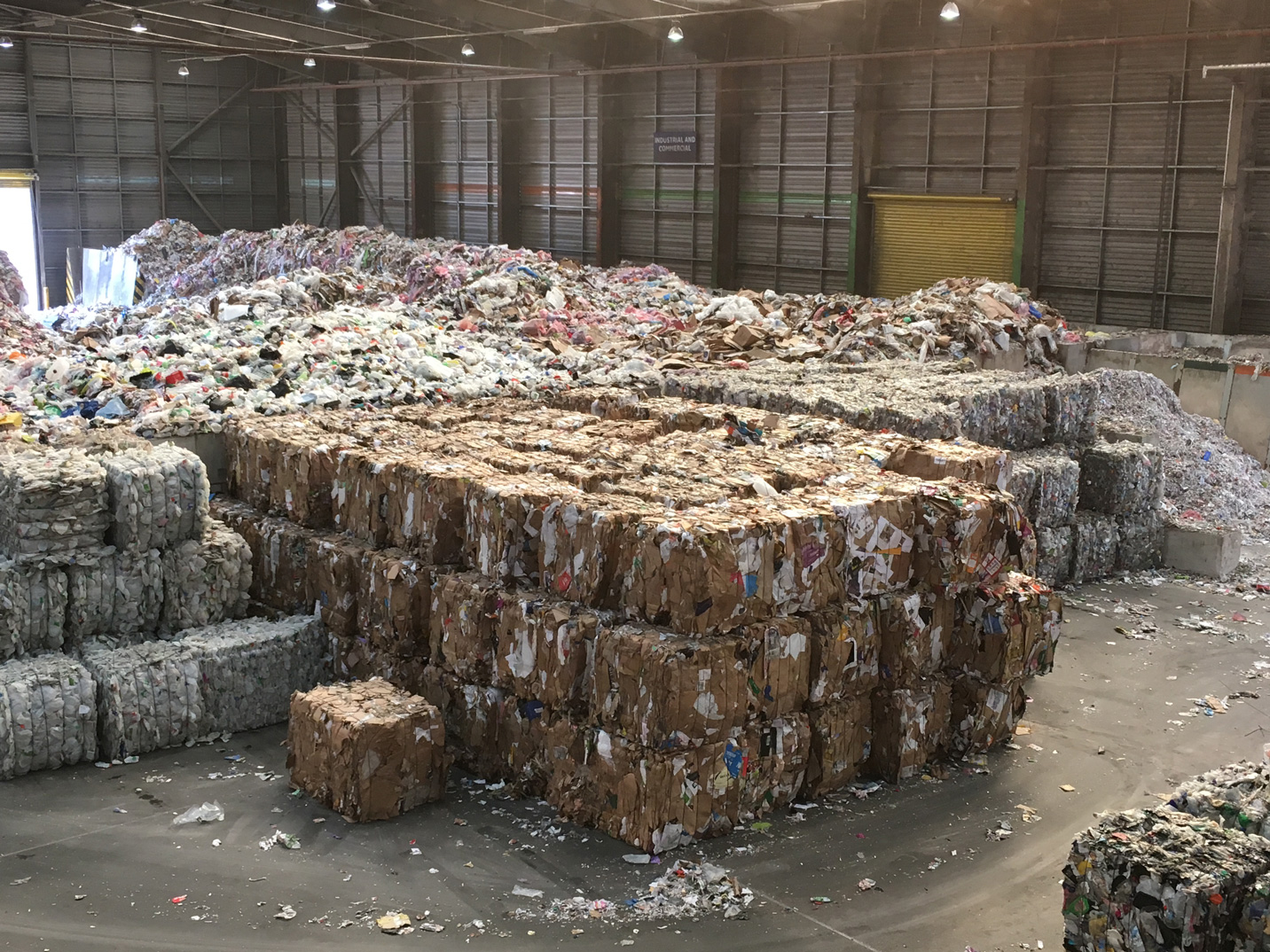

What happens to your recycling depends on where you live, which contractor collects your waste, what facilities are available to sort it and how much that sorting will cost – these factors vary significantly across the country.
As some of you will know, I have been working with Bristol Waste Company on behalf of ConsultQA for over a year a now and I was fortunate to receive an invitation to visit the Suez MRF at Avonmouth. MRF is pronounced like Smurf (!) but is less blue, a whole lot bigger and stands for Materials Recycling Facility. Various local authorities deliver different combinations of waste and recycling to the Avonmouth site including South Gloucestershire (where I live), Bristol Waste Company on behalf of Bristol City Council and Monmouthshire.
I find the waste economy simultaneously fascinating and infuriating, fascinating because of the processes and markets involved and infuriating because all three local authorities using this MRF collect the recyclable materials in different ways – there is no standardisation and this seems to be repeated on a national scale.
For example, in South Gloucestershire, we collect paper and glass in one box, cardboard and Tetra Paks in one bag, plastics and tins in another bag, food waste in a smaller box, nappies in a purple bag, garden waste in a green wheelie bin and everything else in a black wheelie bin. Bristol Waste Company collect items in a different combination of boxes and Monmouthshire collect things in red and purple bags.

South Gloucestershire only send the mixed plastics and tins to the Avonmouth MRF and these are sorted through a series of mechanical processes resulting in bales of plastic, aluminium and steel. Bristol Waste Company send the contents of the split recycling litter bins from the city centre, street sweepings, mixed recycling collected from flats and any contaminated recycling which needs further sorting than their own mechanical processes can achieve. Monmouthshire send both colours of plastic bag which arrive in the same lorry, go in the same hopper and the pieces of red and purple plastic are picked out by hand at 45 picks per minutes from conveyor belts moving at up to 18meters per minute.
Suez are aiming for 98.5% purity of materials at the end of the separating and sorting processes and the combination of mechanical equipment and hand pick lines to achieve this target is impressive. The engineering involved in moving and sorting the waste at a rate of 1400 Tonnes a week is absolutely fascinating, the hall appears to be filled with a living, moving, breathing mechanical machine with conveyor belts and sorting sections all intertwined and yet separating out to produce bales of recyclate material ready to be sold on and re-used. Any remaining residual (non-recyclable waste) goes to the nearby Suez EFW (Energy From Waste) plant to be turned into electricity which is distributed through the national grid network – some of it then being used to power the Avonmouth MRF.
Overall a fascinating visit and a sobering reminder of one of the biggest problems of our time.


Monmouthshire still sorting tbe recycling into different coloured bags for collection, then mixing it back up by jamming it all in the same collection vehicle. There'll be a councillor or politician shaving costs from tbe budget by exploiting a loophole in tbe law behind this. Why doesn't someone flag up or call out the precise reason that this happens? Whare is the loophole in the text of whatever legislation it might be that allows this howling inefficiency?
It's really frustrating isn't it?! I really don't understand why there isn't a single collection methodology in place preferably across the country or at least in groups of neighbouring counties. One of the problems seems to be that the local methodologies dictate what processing facilities are required, and then the available processing facilities dictate the local collection methodologies - a real circular problem.
The most relevant piece of legislation is Reg 13 of the The Waste (England and Wales) Regulations 2011 (://www.legislation.gov.uk/uksi/2011/988/regulation/13/made ) which states that paper, metal, plastic or glass must be collected separately where "technically, environmentally and economically practicable". But this doesn't then solve the problem of what processing facilities have been built and constructed in each area.
It may be interesting to contact your local Councillor / MP to highlight your frustrations and see what their response is - if you do get a response, I'd be interested in what it says!